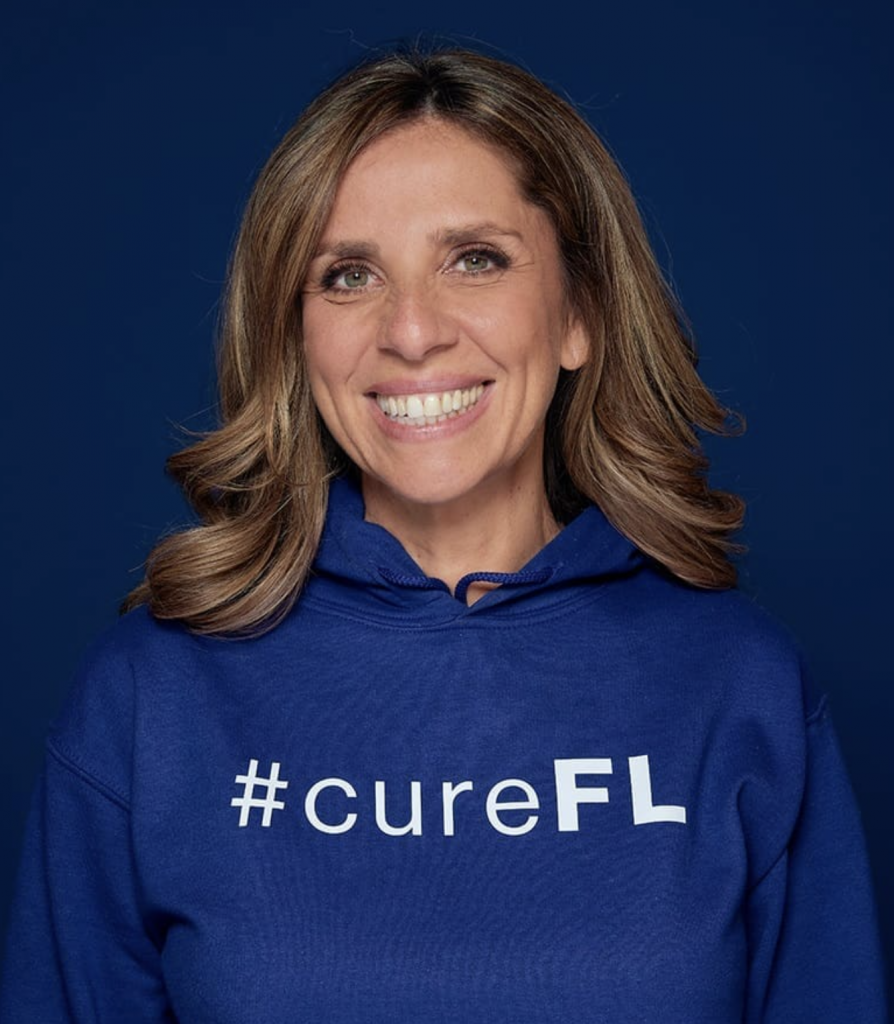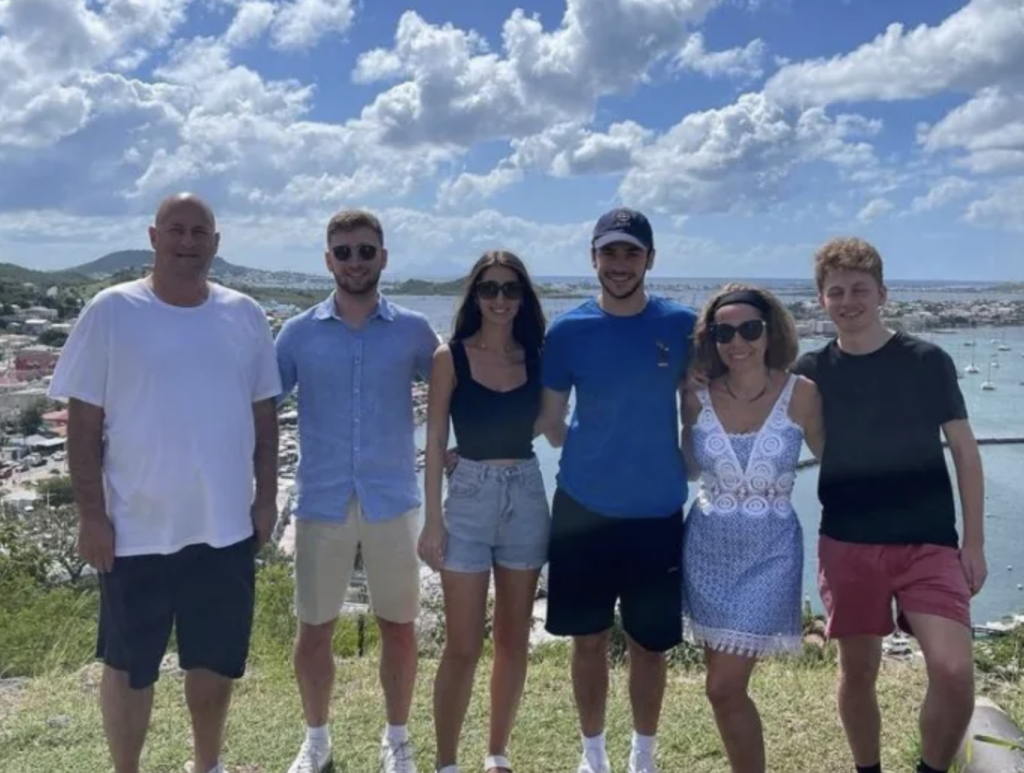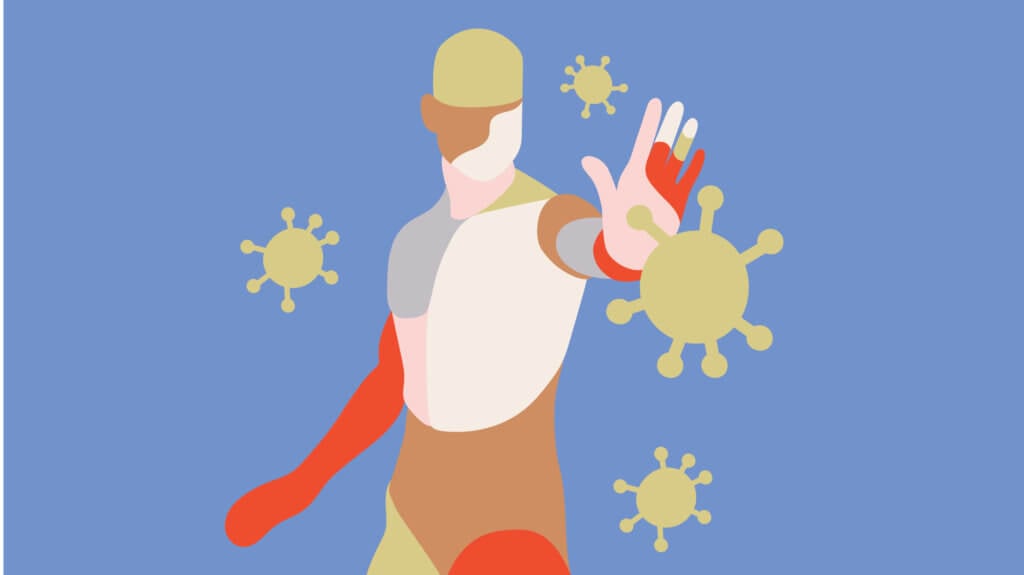Making Massive Strides
- A prominent exec in tech, Nicola Mendelsohn, is an eight-year blood cancer survivor who manages her health and teams at Meta (who owns Facebook, Instagram and WhatsApp) with this same mantra: stop worrying about something you cannot change.
- The company’s Global Head of Business, who is a wife and mother of four, was diagnosed in 2016 with follicular lymphoma (FL), a type of non-Hodgkin lymphoma that is not considered curable and instead, managed like a chronic disease.
- Doctors use an active surveillance approach to monitor people with FL, which means getting regular checkups for the rest of their lives with an annual checkup as a minimum recommendation to track the disease for most patients.
- Fortunately, FL responds well to a variety of different treatments. You and your doctor can decide together which is the best one for you. If you are facing a recent diagnosis, just know that, like Mendelsohn, it is possible to live a full life with follicular lymphoma.
The Head of Global Business at the company was diagnosed in 2016 with follicular lymphoma, which is not considered curable, and instead, managed like a chronic disease. Fortunately, she currently has no evidence of disease.
Read More
Mendelsohn went on to discuss the importance of focus and resilience, and how she uses those qualities to help inspire others, particularly a new generation of female entrepreneurs.
Mendelsohn, who is the founder and chair of the Follicular Lymphoma Foundation, also shared another quality that we can give to others, and it applies in all areas: encouragement.
RELATED: How to Talk to a Friend With Cancer
“Just having people around you going, come on, you can do this, you’ve got this. And it’s not like they’re thinking about having ideas. The women have got those ideas.”

“It’s that combination of those things and then knowing where they can go and find, you know, find the customers,” she continued. “But, you know, that’s the thing that kind of comes together that I’m really proud that our platforms can play a really good role in.”
These apps have also been monumental in giving survivors a voice, and helping to raise funds for their families, something people never had the access to do before. It is a gamechanger to be able to recruit emotional and financial support, which can immensely help with a person’s fight.
Nicola Mendelsohn’s Lymphoma Journey
Mendelsohn, a wife and mother of four and 45 at the time, had first found a small lump in her groin. She went to a specialist in London, who discovered tumors scattered around her chest. She then learned what she was dealing with.
“The weekend of my diagnosis was the darkest moment of my life,” she wrote on the Follicular Lymphoma Foundation site. “I was overwhelmed with fear, wondering if I would live to see my children grow up.”
Her kids, now all adults, were 11, 14, 18, and 20 at the time. When she and her husband told them her challenging news, their youngest asked if she was going to die. She answered honestly: “I’m going to try my best not to.”

“It was a heart-wrenching moment, seeing their shock and fear.”
Mendelsohn worked throughout her 14 chemotherapy treatments, as she found it helped her to keep from dwelling on her illness, keeping a “sense of normalcy.”
Taking advantage of one of the most wonderful things that her work supplies to the masses, she also became “deeply engaged” with the Facebook group “Living with Follicular Lymphoma,” which “has become an incredible resource for patients, offering a lifeline of understanding and encouragement.”
She noted that many cancer survivors, after a diagnosis, drastically change their lives, which is okay, but she stayed the course. “I realised the value of the life I had, filled with love from my family and a job I cherished.”
However, like millions of other survivors, she said her diagnosis “reinforced my belief in living life to the fullest, cherishing every moment, and making memories with the ones I love.”
What Is Follicular Lymphoma?
Follicular lymphoma, a type of non-Hodgkin lymphoma, is not considered curable for most people with the disease. Instead, it’s generally considered more of a chronic disease, which can be observed and managed and people who have it may live with it for a long time.
In a group of patients, rather than treating follicular lymphoma immediately, doctors tend to take an approach known as watchful waiting or active surveillance.
“In terms of the watchful waiting and what it entails, there is a significant range, and that depends a little bit on the patient, a little bit on the physician, and a little bit on the circumstances,” said Dr. Jakub Svoboda, hematology specialist at Penn Medicine.
Watchful Waiting for Follicular Lymphoma: Here’s What It Means
There’s no uniform approach to monitoring for follicular lymphoma. Rather, care teams typically try to avoid unnecessary imaging. Scans are not always vital.
“It’s impossible to tell you from day one of the diagnosis what exactly watchful waiting will mean,” Dr. Svoboda previously shared with SurvivorNet. “In 2020, we are trying to limit the amount of imaging as much as possible.”
Dr. Svoboda further explained why frequent scans aren’t typically part of best practices. “If the trigger to treat means the patient develops symptoms or abnormalities in the blood work, doing scans probably doesn’t make that much of a difference,” he says.
For example, “If the lymph node moves from 2.1 centimeter to 2.8 centimeter, it will not necessarily make me start therapy or change the recommended therapy for the patient.”
When Should People With Follicular Lymphoma Get Scans?
Scans are appropriate where it’s not possible to feel the tumor, because imaging will help follow the enlargement. They are generally recommended once every year or six months, with closer observation after a year.
The frequency “depends on the situation,” Dr. Svoboda noted. “But in my practice, often the first year after diagnosis I watch the patients a little bit closer.”
A year after diagnosis, examinations may be done every four months. “So they may come to see me every three to four months for a good exam. They may do blood work every four months,” he says. “And then as I get to know them, I get to know a little bit about the disease. If you have just only one time point, you may not know what’s going to happen, but if you have two or three time points, you get a sense about the biology of the disease in terms of the growth.”
Active Surveillance
Active surveillance for people with follicular lymphoma means getting regular checkups for the rest of their lives with an annual checkup as a minimum recommendation to track the disease for most patients.
The group of patients with limited disease that is, those who have only follicular lymphoma in one area can be treated with radiation therapy for those localized areas. Some people with early-stage disease can be cured this way. Otherwise, the approach for most patients is watchful waiting.

“We continue to see them on a regular basis basically for the rest of their lives, and at minimum annually,” said Dr. Svoboda. However, “there are some exceptions to the rule,” he said, referring to localized disease.
“There are some people who have very limited follicular lymphoma when they present with just, let’s say, one area of involvement. And those patients actually we do treat,” he says. He notes that this approach is “kind of ironic.”
Why? Because, “Patients with the more advanced disease we do watchful waiting, and for patients who have just one single area of involvement we often treat with radiation.”
Treating Follicular Lymphoma
“A common question I get is, ‘Well, I have cancer. Why aren’t we treating the cancer? Are we missing something and losing our chance to get on top of it?'” said Dr. Elise Chong, an oncologist/hematologist at Penn Medicine, who previously discussed the topic with SurvivorNet. “But the challenge we have with follicular lymphoma is that we really don’t have data showing that instituting treatment early makes people live longer.”
Studies show that patients who are managed with watchful waiting have survival outcomes similar to people who are treated soon after diagnosis. The average survival time with follicular lymphoma, even when it’s diagnosed at an advanced stage, is more than twenty years.
Bispecific Antibodies Show Promise for Follicular Lymphoma
Since cancer treatments themselves have side effects, it makes sense not to begin aggressive treatment until the patient is experiencing troublesome symptoms, or when tests show the cancer has changed and started to spread more quickly. “The best approach is to be careful about when to initiate treatment, and then to choose the proper treatment to try and maximize the response rates. . . which tend to be quite good in follicular lymphoma,” Dr. Chong said. “But you also want to minimize unnecessary toxicity.”
When Treatment Becomes Necessary
Follicular lymphoma responds well to chemotherapy and radiation. In some patients with local disease, radiation alone may lead to a long remission. Often now the recommended treatment, especially in advanced cases, is a monoclonal antibody called rituximab (Rituxan), alone or in combination with chemotherapy. “Rituximab targets a protein called CD20 on the cell surface of the follicular lymphoma cells,” explains Dr. Chong. “We’ve been using this antibody for many years now.”
Some common combination treatments for follicular lymphoma that include rituximab include:
- R-Bendamustine (rituximab and bendamustine)
- R-CHOP (rituximab, cyclophosphamide, doxorubicin, vincristine, and prednisone)
- R-CVP (rituximab, cyclophosphamide, vincristine, and prednisone)
The combination prescribed is always specific to the patient. “It really depends upon the individual patient as well as the trajectory of their disease,” added Dr. Chong.
Rituximab can also be used in combination with non-chemotherapy agents. One of these combinations is antibody therapy plus lenalidomide (Revlimid), an oral drug. “People refer to this combination as the R-squared regimen, but it has its own set of side effects,” she said.
Still another possible treatment for follicular lymphoma is radioimmunotherapy (RIT) which uses a radioactive particle attached to an antibody that targets cancer cells.
Dr. Chong continued to explain that just because something isn’t chemotherapy doesn’t mean it has no side effects. “And that’s something to really talk to your oncologist about so you can weigh the risks and benefits.” Fortunately follicular lymphoma responds well to a variety of different treatments. You and your doctor can decide together which is the best one for you.
Learn more about SurvivorNet's rigorous medical review process.

